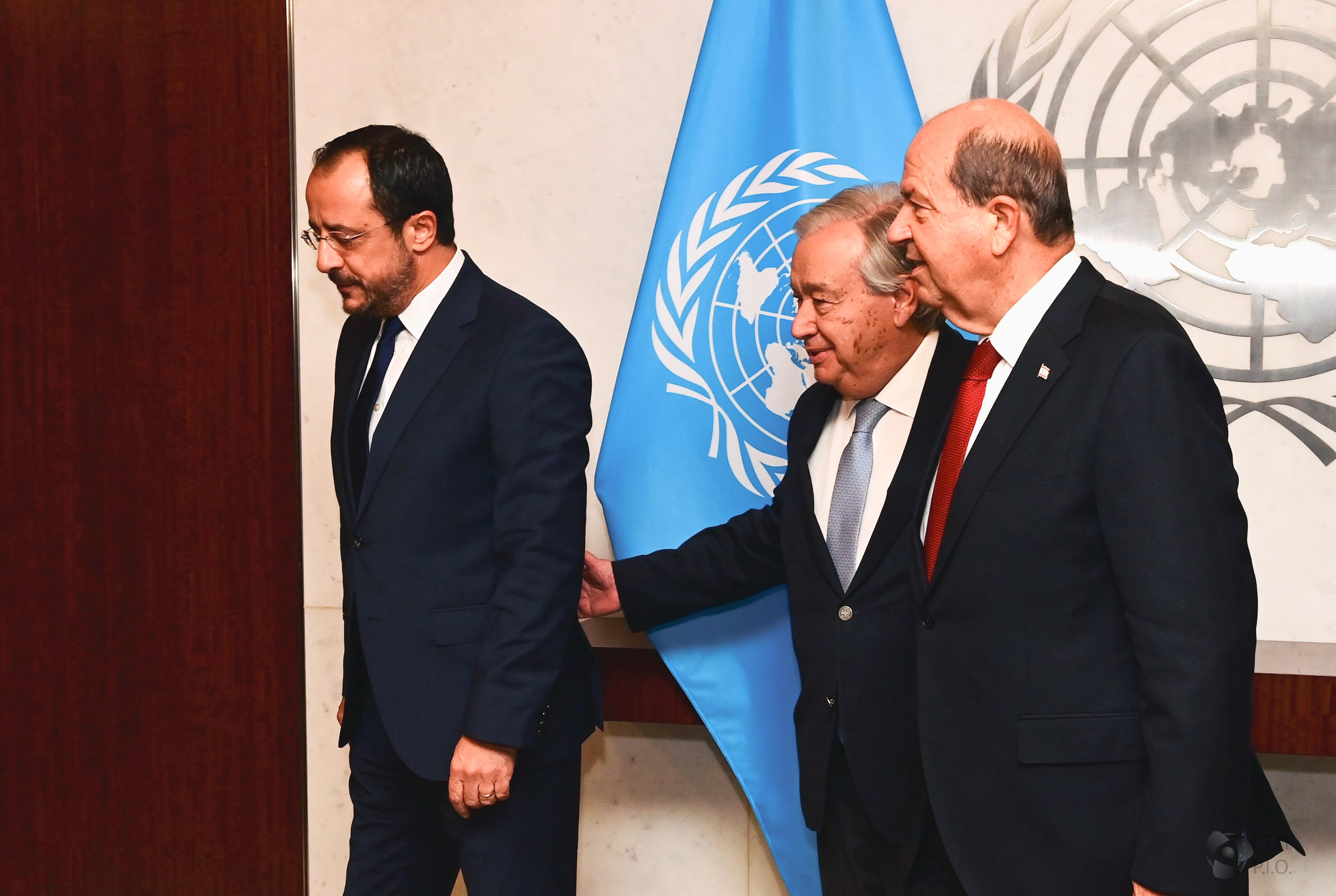The Cyprus problem was bound to feature in President Nikos Christodoulides’ New Year message in which he repeated that his “top priority” was the end of occupation, the liberation and reunification of our country. From his first day in office, he said in his televised address, he has been making every possible effort for a resumption of the talks from the point they broke off (in 2017) and for a settlement based on the agreed framework.
Despite the challenges, the problems, the intransigence and the demand of the Turkish side for a change of the basis of a settlement, “through our persistent and coordinated diplomatic moves” we “secured the reactivation of the international factor and the personal re-involvement of the UN Secretary-General in a new initiative for the lifting of the deadlock and resumption of talks,” he said. “We succeeded in linking, in a way that was clear, gradual, proportional and reversible, in the Conclusions of the European Council, the course Eu-Turkey relations and substantive progress in the Cyprus issue,” he added.
Nobody could take this away from the president. It was an achievement to persuade Antonio Guterres to try to initiate a new process. Sending Maria Angela Holguin to the island to try and establish common ground underlined the Secretary-General’s interest in getting new a process under way – not necessarily from where the talks broke off. Although she failed in her mission, Guterres did not give up, inviting the two leaders for a meeting in New York in October at which it was agreed there would be a five-party meeting – the two sides plus the three guarantor powers – to try and find a way forward. This meeting, according to the latest information, could take place in March, but before then UN Under-Secretary General Rosemary DiCarlo is expected on the island for preparatory consultations.
Later this month, if they agree a date, Christodoulides will meet Ersin Tatar to discuss the opening of more crossing points. This had been the suggestion of Guterres in October, but agreement has been elusive so far. Could there be a five-party meeting if the leaders cannot agree the locations of the new crossing points? If they cannot show a spirit of compromise on something of no great importance, what is the likelihood they would come anywhere close to an agreement regarding a settlement? Perhaps the crossing points are being used as a test by Guterres, to establish whether there would be a point to a five-party meeting in Switzerland in March.
Showing goodwill, in this case, is more important for Christodoulides given his desire to go to a five-party meeting. After all the work he has done, to bring things so far, it would be a big mistake to put the five-party meeting at risk, by refusing to reach an agreement with Tatar on the crossings. It would be no disaster if he does not get everything he wants from this meeting because this is nothing more than a step towards his ultimate objective – a meeting at which Greece, Turkey and Britain would be present and could pave the way for a new peace process. Though it may sound rather absurd, and should not be necessary, Christodoulides needs to show Ankara that he means business, if Turkey is to give consent to a new process and abandon its negative approach.
Keeping Tatar happy on the crossings is a way of doing this, even if it sparks domestic criticism. If the president is as committed to securing a new process that would lead to a deal, as he has been persistently claiming, then he will have to accept that sooner or later he will become a target of criticism from political parties and a section of the media. So far it has been very easy for him, with Tatar setting his two-state condition, with the full backing of Turkey, for engaging in any talks. Christodoulides has been earning plaudits, even from the rejectionists, for taking a positive stand and campaigning for a process, actions that exposed Turkish intransigence.
But he must have also known there was a possibility that the Turkish side would eventually agree to a new peace process. And once this happens, the anti-settlement camp which had commended his handling of the Cyprus problem so far, will turn against him and things could get nasty. Does the president have the stomach for confrontation, or will he start looking for a way out of talks as soon as the hardliners step up their attacks? He could turn to the opposition parties – Disy and Akel – both of which are pro-settlement, for support, because he is unlikely to receive any from the anti-settlement parties that backed his election.
In his New Year message, he said he was waiting for the “broadened meeting under the auspices of the UN, ready to work for the sole objective of ending the occupation and reuniting our country.” More importantly, he said “I am ready to take my historic responsibility, reuniting the country and our people.” All that remains now is for these brave words to be turned into action.






Click here to change your cookie preferences